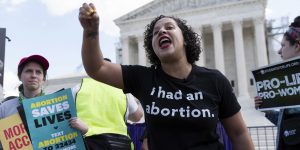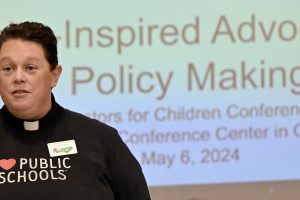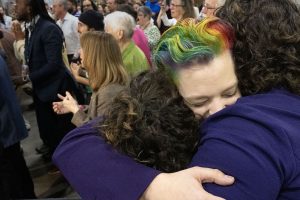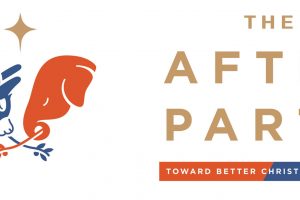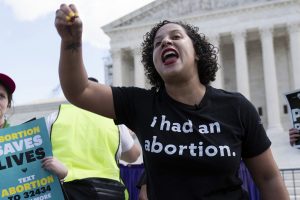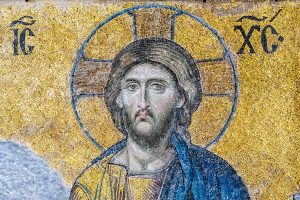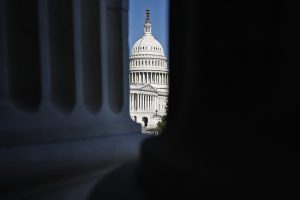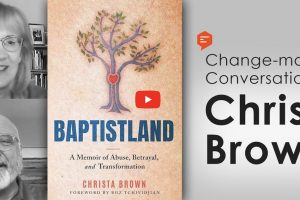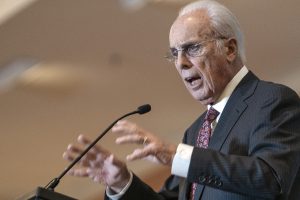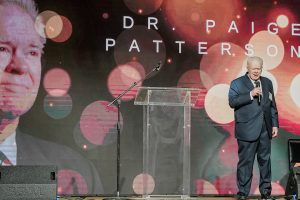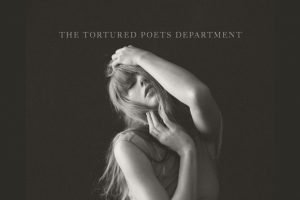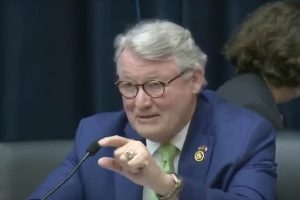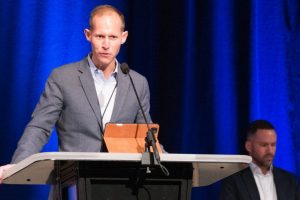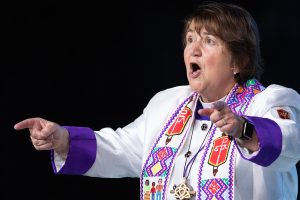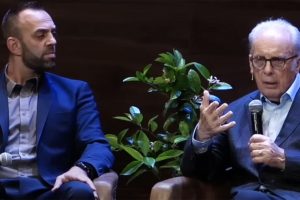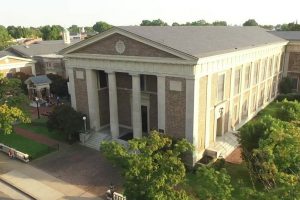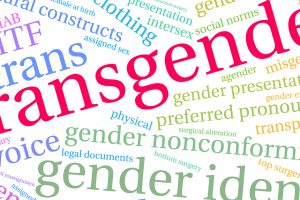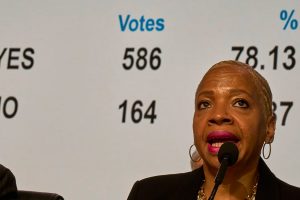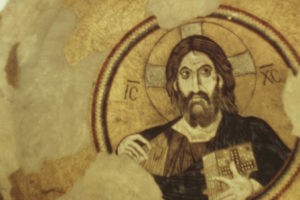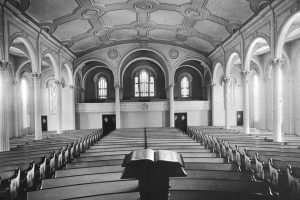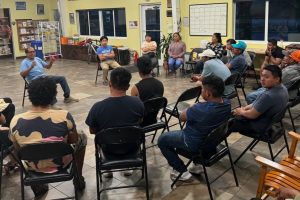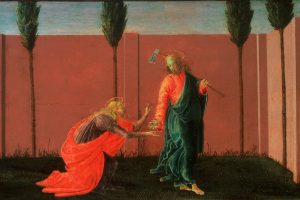The United States of America is one of the most religious and certainly the most religiously diverse nation on the face of the earth. Despite our country’s religiosity, many of us were surprised by a recent poll widely reported in the media about how little we know about other religions and even our own religion. What’s more, despite pride in our democracy and the Constitution/Bill of Rights that guarantee our fundamental liberties, we are similarly misinformed about our rights under the First Amendment generally and religious liberty in particular. Only 17 percent of the public knows religious liberty is ensured by the First Amendment.

Brent Walker
|
I want to reflect on what I consider to be the five top myths about religious liberty and its constitutional guarantor, separation of church and state.
Myth #1: We don’t have separation of church and state in America because those words are not in the Constitution.
True, the words are not there, but the principle surely is. It is much too glib an argument to say that constitutional principles depend on the use of certain words. Who would deny that “federalism,” “separation of powers” and the “right to a fair trial” are constitutional principles? But those words do not appear in the Constitution either. The separation of church and state, or the “wall of separation” is simply a metaphor, a shorthand way of expressing a deeper truth that religious liberty is best protected when church and state are institutionally separated and neither tries to perform or interfere with the essential mission and work of the other.
We Baptists often hold up Roger Williams’ “hedge or wall of separation between the garden of the church and the wilderness of the world,” and point to Thomas Jefferson’s 1802 Letter to the Danbury Connecticut Baptist Association where he talked about his “sovereign reverence” for the “wall of separation.”
But we sometimes overlook the writings of the father of our Constitution, James Madison, who, in a letter to Robert Walsh in 1819, observed that “the number, the industry and the morality of the priesthood and the devotion of the people have been manifestly increased by the total separation of church and state.”
Even Alexis de Tocqueville, in his famed 19th-century Democracy in America, a work often cited by those who would disparage separation, writes favorably of it:
“In France, I had seen the spirits of religion and freedom almost always marching in opposite directions. In America I found them intimately linked together in joint reign over the same land. My longing to understand the reason for this phenomenon increased daily. To find this out, I questioned the faithful of all communions; I particularly sought the society of clergymen, who are the depositaries of the various creeds and have a personal interest in their survival. As a practicing Catholic I was particularly close to the Catholic priest, with some of whom I established a certain intimacy ….
“I found that they all agreed with each other except about details; all thought that the main reason for the quiet sway of religion over their country was the complete separation of church and state. I have no hesitation in stating that throughout my stay in America I met nobody, lay or cleric, who did not agree about that” (p. 295, Geo. Laurence trans., J.P. Meyer ed., 1969. Cited, John Witte, “That Serpentine Wall’” Vol. 101 U.Mich. L. Rev. 1898, May 2003).
The Constitution may not have those words — church-state separation — in it, but those who wrote the Constitution and other early observers had the words in them.
Myth #2: We do not need or want separation of church and state because the United States is a Christian nation.
Depending upon which poll you look at, a little more than half the American people agree with this statement. But it is not true. The United States of America is not a Christian nation, legally and constitutionally.
Yes, most of our founders were religious folk of some ilk; but they did not want to impose their own religion by law on others. And they certainly thought that a religious citizenry was important to good government; but they did not intend to set up a Christian regime under our founding documents. Our civil compact, the Constitution, is a decidedly secular document. It never mentions “Christianity.” Even the word “religion” is used only once in Article VI to ban religious tests for public office.
And then two years later the Bill of Rights starts off “Congress shall make no law respecting an establishment of religion, or prohibiting the free exercise thereof.” This language dispelled any lingering doubt whether America was intended to be a Christian nation when it prevented the federal government from advancing or inhibiting any religious tradition.
And today, no one can deny that Americans are a very “religious people,” as Justice William O. Douglas famously observed in one of his church-state opinions. About 75 percent of the American public claims to be Christian. So, yes, demographically speaking, we may be Christian, but we do not have anything approaching a theocracy, Christian or otherwise. We have a constitutional democracy in which all religious beliefs are protected. And that’s good. The same Constitution that refuses to privilege any religion, including Christianity, protects all religions and the right of other patriotic American citizens to claim no religious beliefs at all. As a result, paradoxically enough, we are a nation of Christians sociologically because we are not a Christian nation constitutionally.
Myth #3: We have freedom of religion but not freedom from religion.
No, this is not true. We have freedom of and from. If we don’t have both, then we have neither. Forced religion is simply a violation of conscience, not a voluntary response to God.
To be sure, one does not have freedom from religion in the sense of insisting that your neighbor not preach a sermon on the street corner, or that religious programming be banned from television or the radio, or that our religious culture secularize itself to suit ones world view. But one most certainly has the right to insist upon freedom from state-sponsored religion.
That’s what the First Amendment’s all about. Freedom from religion and freedom of religion parallel the two religion clauses: no establishment (freedom from religion), and free exercise (freedom of religion). It also parallels the coming together in history of enlightenment thought and religious piety conspiring in colonial times to ensconce protections for religious liberty in the constitution. Forrest Church writes:
“The revolution was powered by two very different engines: one driven by eighteenth-century Enlightenment values, the other guided by Christian imperatives that grew out of the Great Awakening. … The former movement, emphasizing freedom of conscience … stressed freedom from the dictates of organized religion. The latter, stemming from a devout reading of the Gospels…, demanded freedom for religion. … Together, these seemingly opposite world-views collaborated brilliantly and effectively to establish the separation of church and state in America” (Church, Separation of Church and State, p. x-xi).
We must have both, or else we have neither!
Myth # 4: Church-state separation only keeps the government from setting up a single national church or showing preference among faith groups, but not from aiding all religions equally.
If all the founders wanted to do was simply to ban a single, official national church, they did not do a very good job of saying so in the First Amendment. An early draft of the Amendment read in part: “The civil rights of none shall be abridged on account of religious belief or worship, nor shall any national religion be established ….” This draft was passed over. And the founders had ample opportunity to state that the government should be allowed to promote all religion on an even-handed, non-preferential basis.
But the Congress repeatedly rejected versions of the First Amendment that would have explicitly permitted such non-preferential aid. For example, the Senate rejected this proposed language: “Congress shall make no law establishing one religious sect or society in preference to others ….” And they rejected two more proposals with provisions embodying similar language, such as “Congress shall make no law establishing any particular denomination of religion in preference to another ….”
No, the founders approved much more expansive language to keep the new federal government from making laws even “respecting an establishment of religion.” Religion generally — not a religion, or a national religion, but no religion at all, period. They did not merely want to keep the federal government from setting up an official national church or to ban denominational discrimination.
In addition to constitutional history, there are practical reasons to reject the attempts of government to aid all religion on a non-preferential basis. In our pluralistic country with its amazing diversity, it would be impossible to aid all religions evenhandedly. Inevitably, government will pick and choose a preferred religion, and it almost always will select the majority, politically-powerful religious tradition for preferred treatment.
Myth # 5: The separation of church and state has resulted in God being kicked out of the public schools and banished from the pubic square.
What a thing to say — to presume that God can be kicked out of anywhere. No, as James Dunn is wont to say, “God Almighty has a perfect attendance record.”
It is only state-sponsored religion that has been banned from the public schools. Voluntary student religious expression is not only not prohibited, it is protected — as long as it does not disrupt the educational process and respects other students’ rights not to participate.
Time does not permit a full listing of all of the religious activities that are permitted in the public schools — from voluntary prayer, to teaching about religion, to studying religious holidays, to Bible clubs before and after school, to wearing religious garb. There are numerous national consensus statements by religious and education organizations from the left to the right, that outline these various avenues of permissible religious expression.
Yes, educators still get it wrong sometimes. Some principals want to return to the “sacred public schools” of yesteryear and others are ready to overreact and create “naked public schools” where every vestige of religion is stripped away. But the model that most are perusing is the ”civil public schools” where the government does not promote religion but takes religion seriously in the curriculum and, where possible, accommodates the free exercise needs of students.
To say God has been banished from the public square is also a huge misconception. The institutional separation of church and state does not mean the segregation of religion from politics or God from government or strip the right of people of faith to speak forcefully in the public square. It only means government cannot pass laws that have the primary purpose or effect that advances religion.
Religious speech in public places is common place. From bumper stickers, to bill boards, to post football game prayer huddles, and on and on. It seems like every month new cover stories on religion and religious themes appear in national news magazines and religious programming on television, radio and the Internet is common. Religious themes pervade movies. Some seminaries nowadays even have courses on theology in the cinema. John Grisham’s new novel, The Confession, has religion in it at every twist and turn. (He is a Baptist, you know.) “God Bless America” is sung during the seventh inning stretch in almost every major league baseball park and is an obligatory conclusion to the speeches of every politician, who wants to keep on being a politician.
“Civil religion” in public places is alive and well. In a culture as religious as ours we should not be surprised that references to God pop up in our pledge, our mottos, our songs and our civil ceremonies and public rituals. These brief governmental expressions of religion (sometimes called “ceremonial deism”) will usually pass constitutional muster as long as they do not 1) mandate religious worship, 2) single out a particular religion for favored treatment or 3) compel religious conformity. Some of us may have theological concerns about civil religion because it can be abused for political gain, quickly morph into an idolatry of nationalism or result in the trivialization of religion. But the constitutional doctrine of church-state separation does not prohibit various expressions of civil religion.
Now there are the five. Maybe you could offer another one or two. We who believe separation of church and state is indispensable to ensuring religious liberty for all must continue to speak out in its favor.
I want to conclude with the words penned by Justice Sandra Day O’Connor in her last church-state opinion before retiring and offer them to those who think what I have said is either wrong or misguided:
“[T]he goal of the [Religion] Clauses is clear: to carry out the Founders’ plan of preserving religious liberty to the fullest extent possible in a pluralistic society. By enforcing the Clauses, we have kept religion a matter for the individual conscience, not for the prosecutor or bureaucrat. At a time when we see around the world the violent consequences of the assumption of religious authority by government, Americans may count themselves fortunate: Our regard for constitutional boundaries has protected us from similar travails, while allowing private religious exercise to flourish. … Those who would renegotiate the boundaries between church and state must therefore answer a difficult question: Why would we trade a system that has served us so well for one that has served others so poorly?” (McCreary County, Ky., et al. v. ACLU of Ky. et al., 545 U.S. 844, 882 [2005] [O’Connor, J., concurring]).
Justice O’Connor is right. The separation of church and state is good for both!
J. Brent Walker is executive director of the Baptist Joint Committee for Religious Liberty. This commentary is excerpted from an address he made at the University of South Carolina on Nov. 10.

